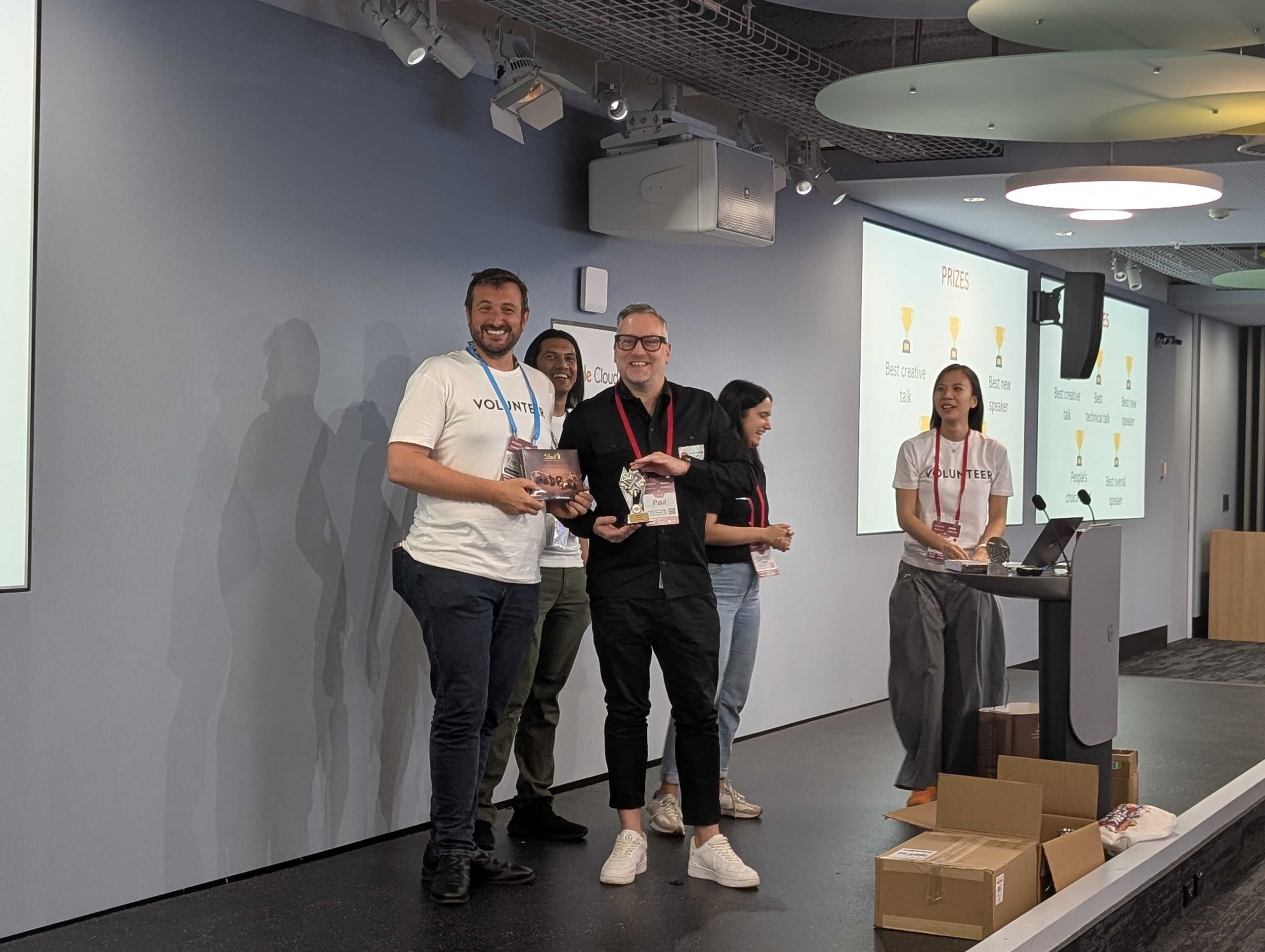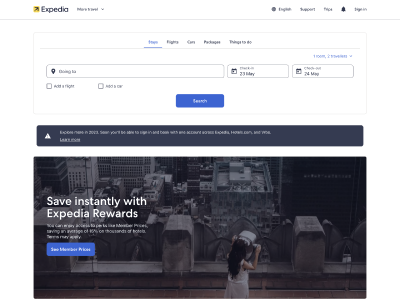Mumbrella’s Travel Marketing Summit brought together industry leaders, innovators and strategists to discuss the future of travel marketing in a post-pandemic, digitally-driven world. This year’s summit focused on embracing change, innovation, and inclusivity to keep pace with evolving consumer behaviours and expectations. Key themes included:
- The rise of personalisation
- The role of artificial intelligence (AI)
- The expanding influence of social media on travel planning
- The importance of accessible and inclusive tourism
Each session of the Mumbrella Travel Marketing Summit offered valuable insights and actionable strategies to help travel brands connect with audiences more authentically and effectively. Here’s a detailed recap of each discussion’s most impactful moments and takeaways.
Travel Marketing Summit Breakfast Panel: “The Future of Search in Travel”
The summit opened with our own breakfast panel led by Paul Hewett, CEO of In Marketing We Trust, featuring insights from TikTok’s Rory Clayton, Google’s David Rossi and our Chief Innovation Officer, Frederic Chanut. We explored how shifting search trends and AI advancements are redefining the way travellers discover destinations, with a strong emphasis on social media’s role in shaping travel choices.
Key Takeaways:
- Social media as a Search Platform: Rory Clayton highlighted that TikTok is no longer just an entertainment platform; it has become a powerful search tool, especially for Gen Z and Millennials. He shared that TikTok sees 3.2 billion daily searches, with 25% of users searching within seconds of opening the app. This underscores the need for travel brands to establish a strong presence on social platforms, using short, engaging video content that captures the audience’s attention instantly.
- AI and Visual Search: David Rossi discussed Google’s advancements in AI-driven, visual and conversational search capabilities, especially with Google Lens, which now handles over 20 billion visual searches monthly. He noted that 25% of these searches are commercially driven, showing that people increasingly rely on visual cues to make travel decisions. “Travel brands need to be ready for the new era of search, where visuals and community-driven recommendations shape the journey,” he explained.
- The Need for Multi-Channel Strategy: Frederic Chanut emphasised that as search expands into social platforms, brands should adopt a multi-channel approach, ensuring visibility across traditional and emerging search channels.
Main Takeaway: As search evolves to be more social and visual, travel brands must embrace video content, AI technology, and multi-channel strategies to stay relevant and accessible to modern consumers.
Want more takeaways? Read the full transcript from our breakfast panel at the Travel Marketing Summit.
“Travel brands need to be ready for the new era of search, where visuals and community-driven recommendations shape the journey.”
Read more on The Future of Search in Travel in our whitepaper.
Session 2: “Making Your Travel Brand Unmissable”
Cam Blackley, Emily Taylor and Katy Watson from Tourism Australia’s “Come and Say G’day” campaign team presented a high-energy session on standing out in a crowded travel market. They stressed that creativity should not be overshadowed by data, arguing that bold, memorable campaigns are what genuinely connect with audiences.
Key Takeaways:
- Balancing Data with Creativity: Blackley urged marketers not to let data-driven decisions stifle creativity. He warned, “Playing it safe is the riskiest thing a marketer can do.” The “Come and Say G’day” campaign was designed to appeal emotionally to local and international audiences, showcasing Australia as a warm, welcoming, and adventurous destination.
- Creating a Unique Brand Identity: Emily Taylor emphasised the need for travel brands to craft distinct identities that resonate beyond the product or service. She shared that the campaign aimed to make Australia “more than a destination, it’s an experience,” connecting deeply with potential visitors’ aspirations and values.
Main Takeaway: Travel brands should balance data with bold, authentic storytelling to create a strong brand identity that resonates emotionally with audiences.
“Playing it safe is the riskiest thing a marketer can do.”
Session 3: “Using Personalisation as a Powerful Growth Lever”
Clinton Hearne from Flight Centre Travel Group told attendees how personalisation can drive customer loyalty and growth. His insights highlighted the importance of harnessing data to deliver customised travel experiences that meet individual preferences.
Key Takeaways:
- Enhancing Customer Relationships Through Personalisation: Hearne described how Flight Centre uses data insights to tailor marketing efforts to customer preferences, creating personalised offers and experiences that build loyalty. “In today’s market, personalisation is not just a tactic; it’s how we show customers that we see them, we understand them, and we care about their journey,” he shared.
- Data as a Growth Driver: Hearne noted that personalised marketing increases engagement and repeat bookings, as customers are likelier to choose brands that demonstrate an understanding of their needs.
Main Takeaway: Personalisation is a crucial driver of loyalty and engagement in travel marketing. Brands should focus on data-driven strategies, allowing individualised communication and tailored offers.
“In today’s market, personalisation is not just a tactic; it’s how we show customers that we see them, we understand them, and we care about their journey.”
Session 4: “PR Underdogs: The Earned-First Minded Marketers”
In this session, Sarah Anderson, Danika Porter and Chris Fundell shared strategies on how PR-focused, budget-conscious travel brands can still create a strong impact. The panel emphasised the importance of a nimble, earned-first approach to build credibility and reach without heavy ad spend.
Key Takeaways:
- Leveraging PR for Maximum Reach: Porter and Fundell discussed successful campaigns that prioritise earned media to gain widespread attention. Fundell cited Tourism Tasmania’s “Pay by Sleep” campaign, which offered unique, cost-effective exposure without relying on high-cost media buys.
- Building Credibility Through Storytelling: Anderson underscored that PR-driven storytelling builds trust and resonates more deeply with audiences than paid advertising. “When you don’t have the budget, you have to have the strategy and PR is all about telling stories that people want to share,” she explained.
Main Takeaway: An earned-first strategy focusing on authentic storytelling and strong PR enables brands to achieve a powerful impact even with limited resources.
“When you don’t have the budget, you have to have the strategy and PR is all about telling stories that people want to share,”
Session 5: “ChatNT: Rebranding NT’s Low Season with AI and Celebrity Influence”
Monika Tonkin and Henry Taylor presented Tourism NT’s “ChatNT” campaign, which used AI and influencer marketing to reposition the Northern Territory’s low season as an exciting travel opportunity. The campaign successfully reshaped perceptions of the NT’s low season by partnering with Abbie Chatfield.
Key Takeaways:
- AI for Personalised Engagement: The AI-powered “ChatNT” bot interactively allowed potential visitors to discover NT’s attractions, offering personalised suggestions based on user preferences. This use of AI allowed Tourism NT to reach a wider audience without sacrificing personalised engagement.
- The Power of Influencer Partnerships: Partnering with Abbie Chatfield brought relatability and a broad reach to the campaign. “Abbie’s authenticity and popularity were instrumental in reshaping perceptions,” said Taylor, underscoring the value of aligning with influencers who resonate with target audiences.
Main Takeaway: AI and strategic influencer partnerships are potent destination marketing tools, allowing for scalability and personal connection.
Stream 1: “Why Have We Got It So Wrong with Gen Z?”
Contiki’s Head of Marketing, Jayesh Kesry, and Marketing Director, Maria Parisi, dissected common mistakes brands make when marketing to Gen Z. They emphasised the need for authenticity and an understanding of the values driving Gen Z travellers, including sustainability, cultural immersion and personal expression.
Key Takeaways:
- Avoiding Stereotypes: Kesry shared that Gen Z can detect inauthentic messaging quickly. To connect with them, brands must avoid generalised assumptions and focus on creating campaigns that reflect their diverse identities. “Gen Z isn’t a monolith—they want brands that reflect their individuality,” he noted.
- Prioritising Experiences Over Products: Parisi explained that Gen Z values immersive experiences that align with their personal and social values, like sustainability and cultural connection. “Our goal is to create travel experiences that resonate with what Gen Z cares about deeply,” she added.
Main Takeaway: To resonate with Gen Z, travel brands must prioritise authenticity, embrace diversity, and create experiences beyond traditional tourism.
Stream 2: “Brand vs. Performance: Intrepid’s Big Bet That Paid Off”
Intrepid Travel’s General Manager of Global Brand, Natalie Placko, shared how the pandemic forced Intrepid to shift from performance-based marketing to a brand-led strategy. By focusing on its values and mission, Intrepid not only weathered the crisis but also saw a surge in demand.
Key Takeaways:
- Embracing Brand Identity Over Performance Metrics: Placko explained that the pandemic allowed Intrepid to double down on its brand values, positioning itself as a leader in responsible travel. This shift led to a 41% growth in online revenue and the highest direct sales day in the company’s history. “The pandemic gave us a chance to reflect on who we are and what we stand for,” she shared.
- Long-Term Brand Building: Placko encouraged brands to see beyond immediate ROI and focus on brand building that resonates long-term. “Performance marketing serves a purpose, but brand identity is what builds loyalty and longevity,” she explained.
Main Takeaway: Focusing on brand identity and values, rather than short-term performance metrics, can strengthen a travel brand’s foundation and foster meaningful connections with customers.
“Performance marketing serves a purpose, but brand identity is what builds loyalty and longevity.”
Session 6: “Unlocking the Power of Accessible Tourism”
Michelle Blancato from Tourism and Events Queensland shared insights on Queensland’s “Year of Accessible Tourism” campaign, which focused on making travel more inclusive. The campaign highlighted the importance of accessibility in tourism, not just as a legal or ethical obligation but as a significant commercial opportunity.
Key Takeaways:
- Accessible Tourism as a Business Opportunity: Blancato highlighted that 23% of domestic trips are taken by travellers with accessibility needs, showing that accessible tourism is a substantial market. She explained, “When we make travel accessible, we’re not just meeting an obligation—we’re tapping into an audience that wants and deserves to experience the world.”
- Inclusive Storytelling and Representation: The campaign’s use of podcasts featuring travellers with disabilities showcased the importance of diverse representation. This storytelling approach gave the community a voice, allowing people to share their experiences and engage others authentically.
Main Takeaway: Accessibility is essential, not just ethically but commercially. By making tourism inclusive, brands can access new markets and enhance their reputation.
“When we make travel accessible, we’re not just meeting an obligation—we’re tapping into an audience that wants and deserves to experience the world.”
Session 7: “Breaking Category Conventions in Travel Marketing”
Peter Chapman, Chief Marketing Officer of Reflections Holidays, closed the summit with a session on the power of breaking conventions in a conservative industry. He shared how Reflections Holidays adopted a “pirate” mentality to redefine what holiday parks could offer, moving away from traditional family-focused imagery to cater to a broader audience.
Key Takeaways:
- Rethinking the Four Ps: Chapman highlighted how Reflections Holidays revamped its brand to appeal to those wanting a nature-focused experience with modern amenities, distinguishing itself from competitors focusing on the family demographic. “Holiday parks have a stereotype problem,” he explained. “We needed to create something unique, so we looked at what the other 30% of the market wants—those who aren’t just here for splash parks.”
- Authenticity Through Disruption: Chapman’s team positioned Reflections as a modern, inclusive holiday option by challenging industry norms, resulting in a 35% increase in brand awareness and an 18% revenue increase over two years.
Main Takeaway: Challenging industry norms can drive significant brand growth. Brands willing to disrupt conventions can tap into new markets and build a distinct, appealing identity.
Travel Marketing Summit Wrapped Up: Embracing Innovation, Inclusivity, and Authenticity in Travel Marketing
Mumbrella’s Travel Marketing Summit emphasised that the future of travel marketing is defined by innovation, inclusivity, and an understanding of modern consumers’ shifting preferences. From the rise of AI and personalisation to the significance of accessible tourism and brand differentiation, the summit highlighted a clear direction for the industry.
The key message was clear: brands that are bold in their storytelling, innovative approach, and commitment to inclusivity will lead the way. The summit’s insights provide a valuable roadmap for navigating the future of travel marketing in a way that resonates with diverse audiences and builds lasting connections.





















